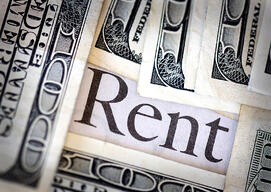 When a business considering moving to a new property, the choice between whether to buy or lease the commercial real estate becomes an important decision. To evaluate this choice, businesses must consider the advantages and disadvantages of each. Here are several factors to consider when determining which choice to make.
When a business considering moving to a new property, the choice between whether to buy or lease the commercial real estate becomes an important decision. To evaluate this choice, businesses must consider the advantages and disadvantages of each. Here are several factors to consider when determining which choice to make.
Cash Flow
Buying commercial real estate requires cash. A cash down payment is required, and after that, there will be monthly payments for the duration of the loan. With a lease, less cash is generally needed up front. Leasing commercial real estate may require a tenant to pay one or two months of the rental payments and, most likely, a down payment. This difference is often the primary factor businesses take into consideration when making this decision. If a business buys a property, its cash flow may suffer. Businesses with little, or poor, cash flow often experience trouble. By leasing a property, less cash is paid up front, leaving a business owner with more cash to use for business operations, expansions and renovations.
Equity
One downfall of leasing commercial property is that a business never accumulates any equity in the property, especially considering how much the business pays for monthly payments over the length of the lease. When buying commercial real estate, the business accumulates equity in the property. Eventually, if the business decides to part with the property, it is able to generate cash. On the other hand, if a business decides to move, with leased property, the business does not have to worry about selling the property. It simply waits until the lease expires and moves to a new location.
Maintenance
Depending on the lease agreement, a business that leases commercial property typically is not responsible for major maintenance activities on the building. For example, if a property needs a new roof, a leaseholder most likely will not be required to pay for it. Instead, the property owner pays the bill. Owning commercial property requires the owners to pay for all renovations and maintenance to the property, assuming their are no agreements, explicitly stating otherwise with a tenant in the building.
Other Factors
A common factor that plays a role in this decision is a business's credit. If a business has poor, or little, credit, it may not be able to borrow the necessary funds in order to buy commercial real estate. To obtain a lease, there are typically fewer requirements when it comes to a business's credit score. One more factor to consider is the tax implications of each.
There are benefits for a business to choose to buy property versus leasing, but on the other hand, the costs may be simply too much. It is absolutely imperative to investigate all of the factors involved when making the decision to buy or lease commercial property.








